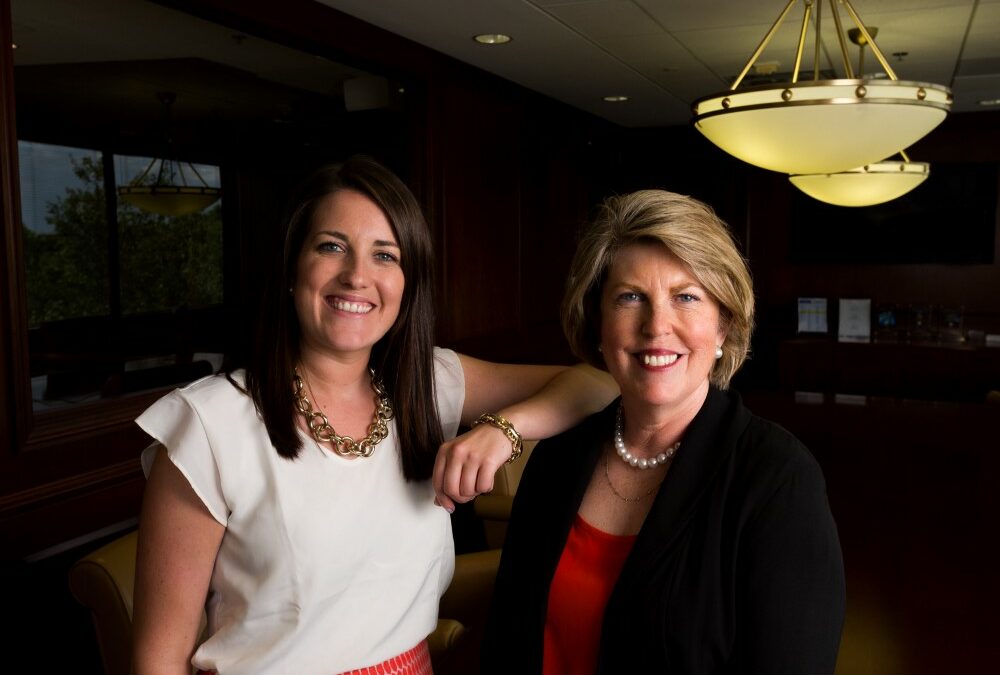Anne Hilb: What is the mission of your organization?
Kathy Armstrong & Elizabeth Paal Goss: In a changing, uncertain world, our mission to provide clarity and a roadmap to our clients to help them achieve financial independence.
AH: What is the vision?
KA & EPG: Our vision is to be recognized as the premier financial planning and investment advisor team serving high net worth individuals in the mid-Atlantic region.
What are the values?
- Experience
- Integrity
- Responsiveness
How would you define “transparency?”
Transparency is the act of operating openly in all business actions, including communication and accountability.
85% of people are likely to give a business a second chance after a bad experience–and stick by it during a crisis–if it has a history of being transparent, according to a study by Sprout Social.
How does this value relate to your work?
We embrace transparency both within our team and with our clients. It’s extremely important for our clients to understand every action that we recommend for their situation – what it is, why we are recommending it, and how it will likely impact their situation going forward. We spend quite a bit of time, one-on-one, with clients explaining these proposed actions, along with on-going reviews of the impact to their situation.
Regarding our team, we have built a culture of mutual respect and trust. Our team meets together at least weekly to discuss all aspects of our financial planning practice, reflecting on short-term as well as long-term needs and planning. We have cross-trained so that we can cover for another team member, if they are unavailable. We also engage in off-site activities to help us grow as a team. These activities might include 3-day planning retreats (annually), community service, or just simple fun events such as paint nights or attending polo matches together.
Does transparency effect the way you two work together as partners?
It would be impossible for us to operate effectively without being completely transparent with each other.
How about in the way you maintain relationships with your clients?
Our clients demand and deserve to receive total transparency with our advice. This requires clear communication in terms of investment programs recommended, fees incurred, and time expectations. Likewise, we also expect full transparency from our clients, meaning that we need to have a good understanding of their goals and any road-blocks that are anticipated. We also need to know if there are any issues that are of particular importance to them.
What role do you see transparency play in both the hard skills you must perform, but also in the soft skills?
Although the approach of hard skills vs. soft skills may seem quite different, they both must be approached with total transparency.
For example, if a client has difficulty spending less than their income, it would be critical to have a heart-to-heart dialogue about the impact to their financial situation if that behavior continues. The hard skills would include reviewing budget spreadsheets and cash flow projections; the soft skills would include empathy, coaching, and providing supplemental resources, etc.
But the transparency still remains.
What are some of the most common patterns you see happen to people who do not value transparency? (This could be referring to clients or to other business leaders)
The most noticeable pattern that I see when there’s no transparency is a lack of trust. A relationship lacking trust is sub-par, at best.
Is there something surprising folks may not guess, or very few people know, about the two of you that you would like to share?
Most people know that we are a mother-daughter team. What they might not know is that we think alike, we both embrace our values, and we have tons of fun working together. (not to mention a daily lunch buddy)
Probably just a coincidence, but both of our husbands are named Don and we both are avid dog lovers, sharing pictures with friends and family to compete for the title “Cutest Dog Ever.” TBD on who is in the lead.


Recent Comments